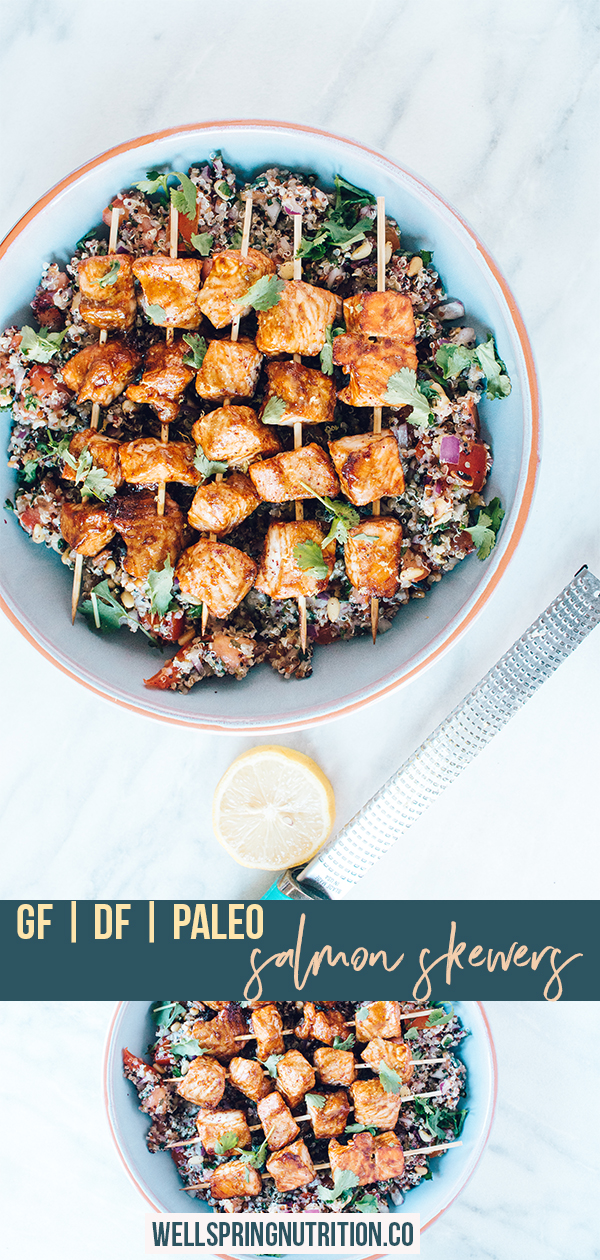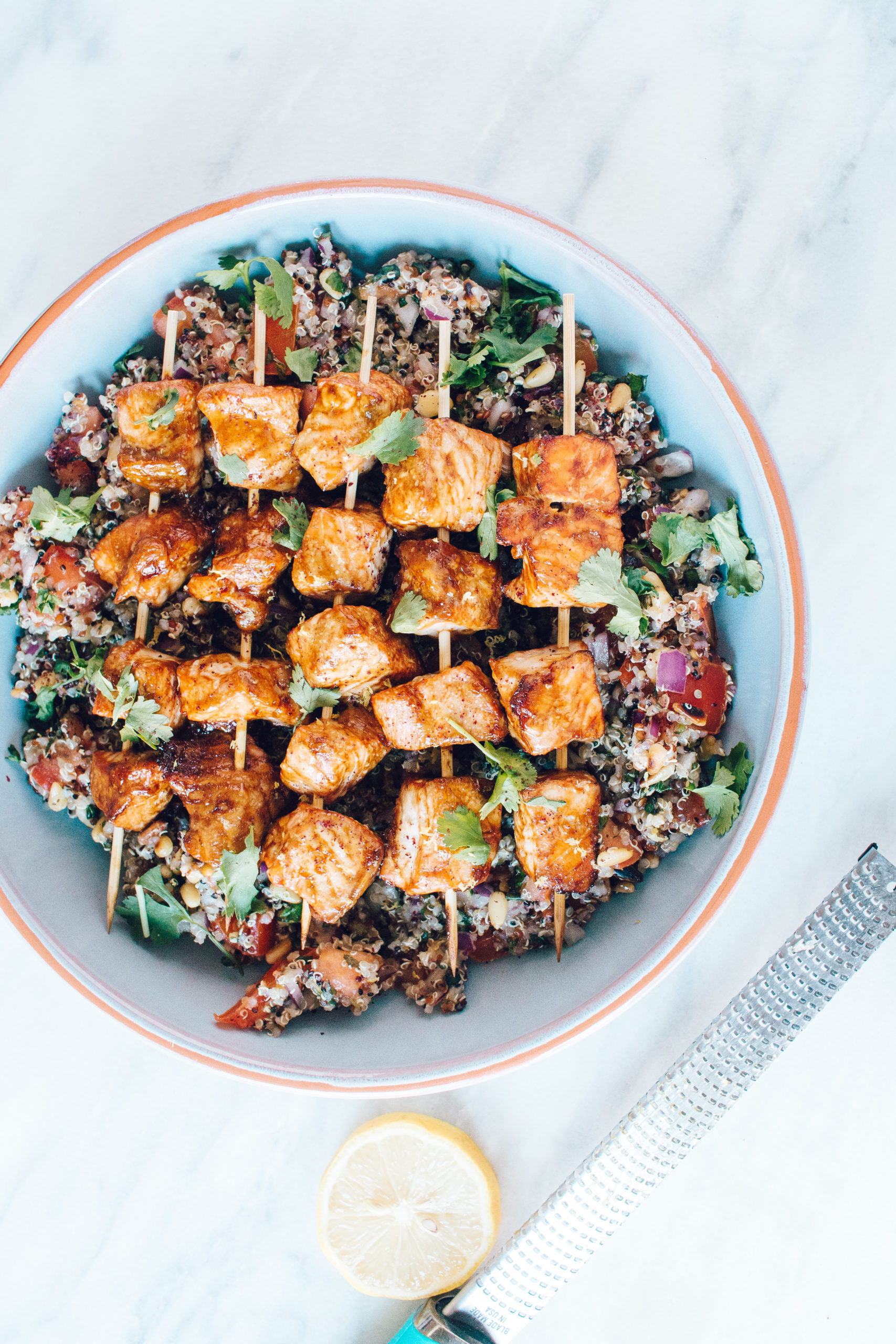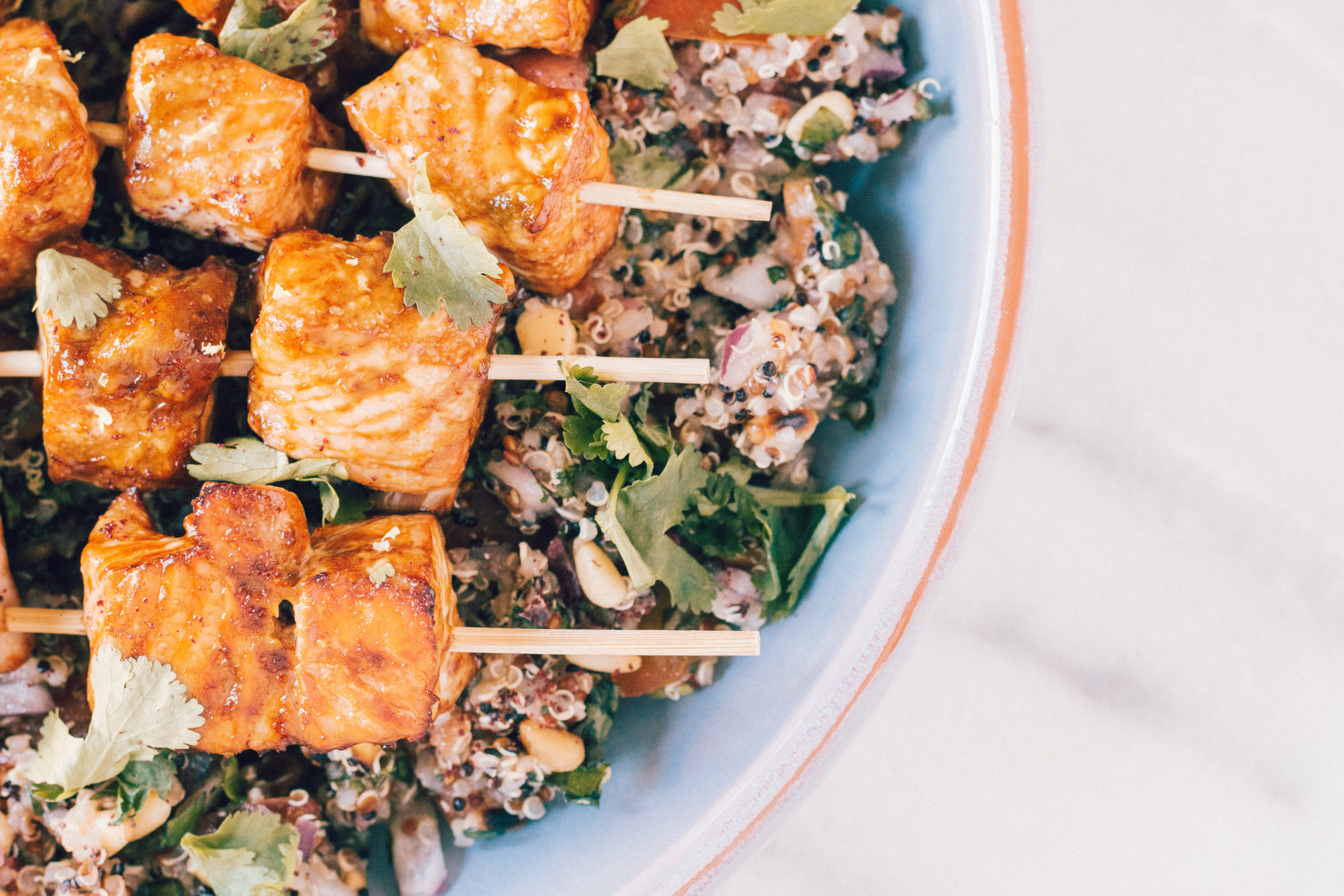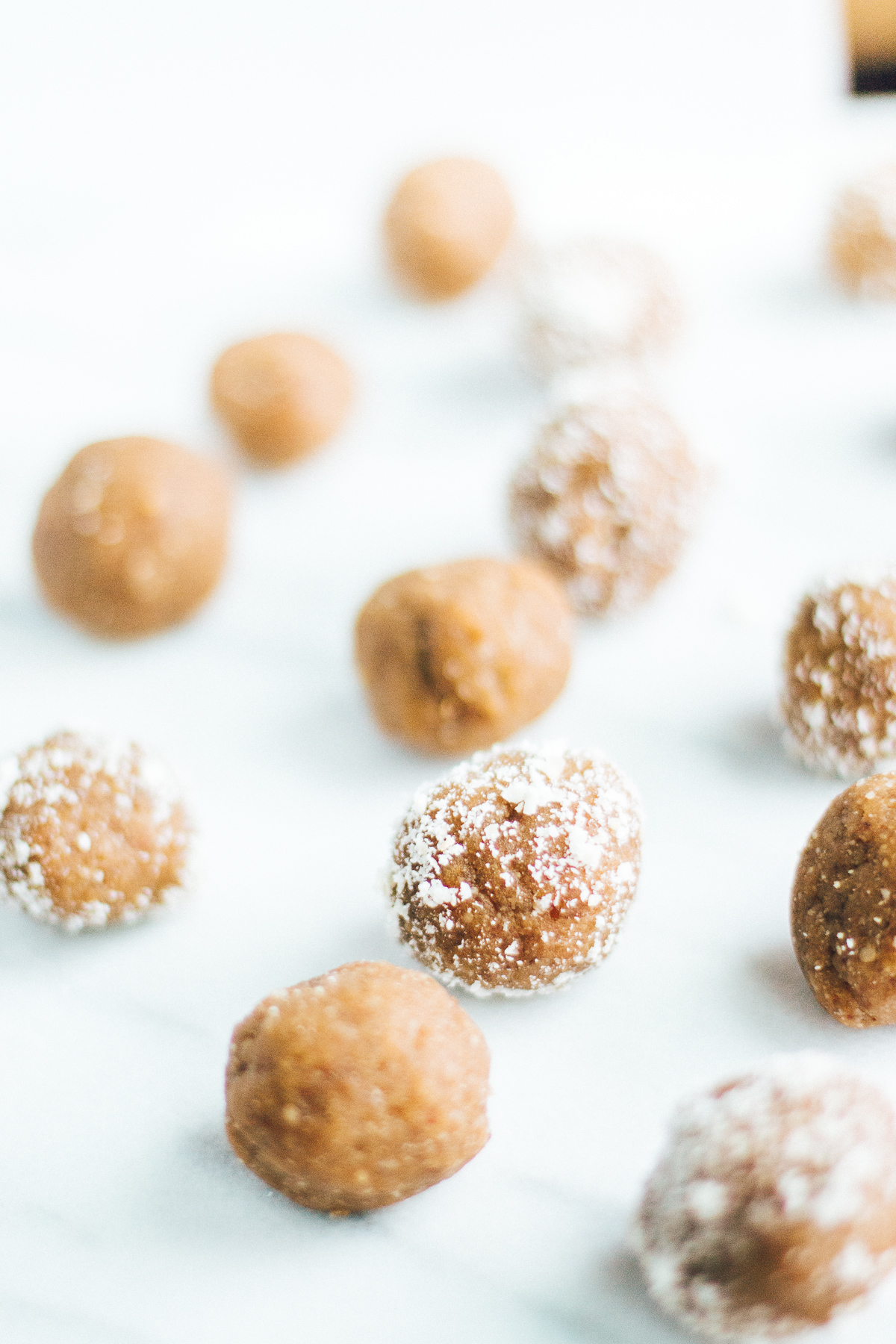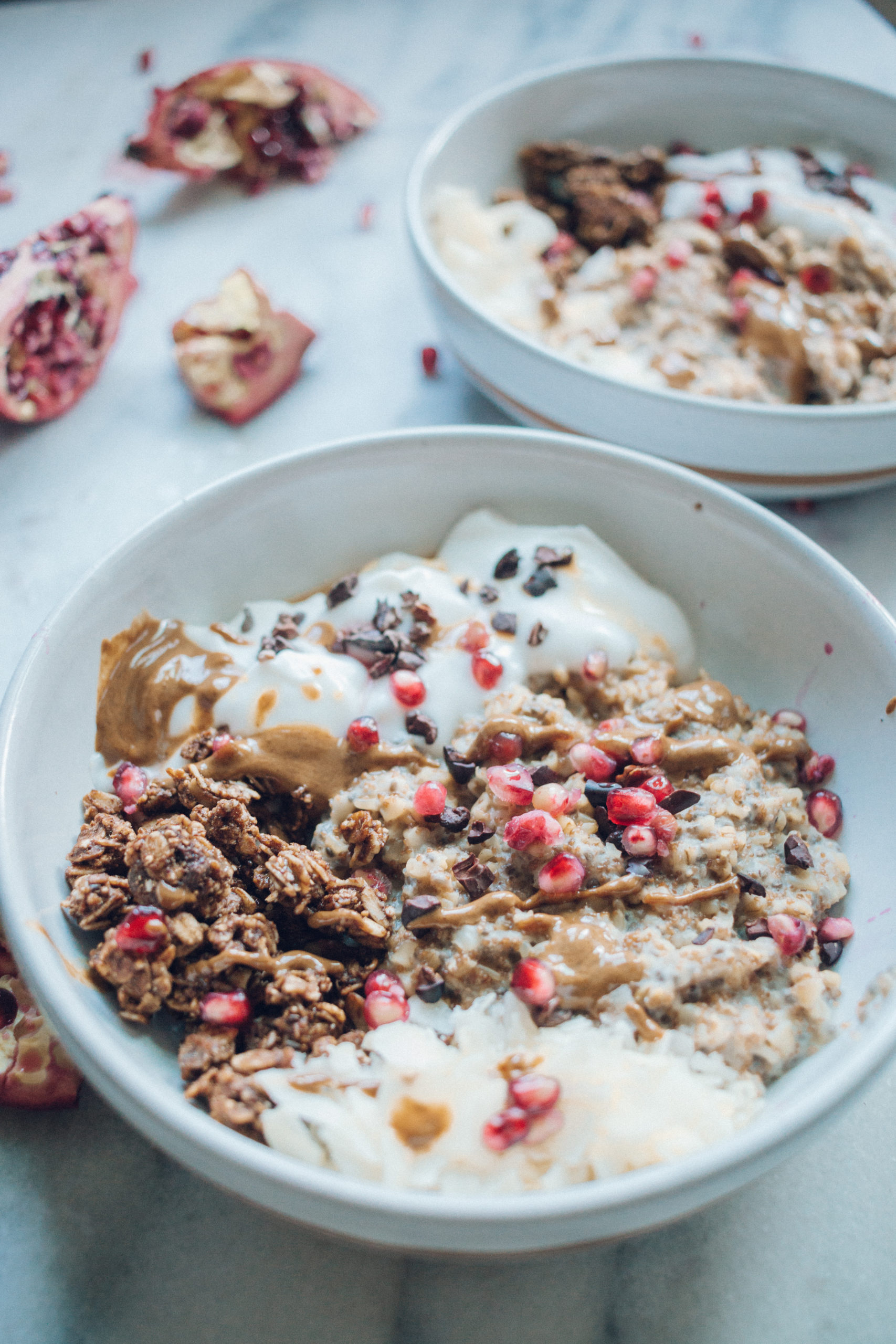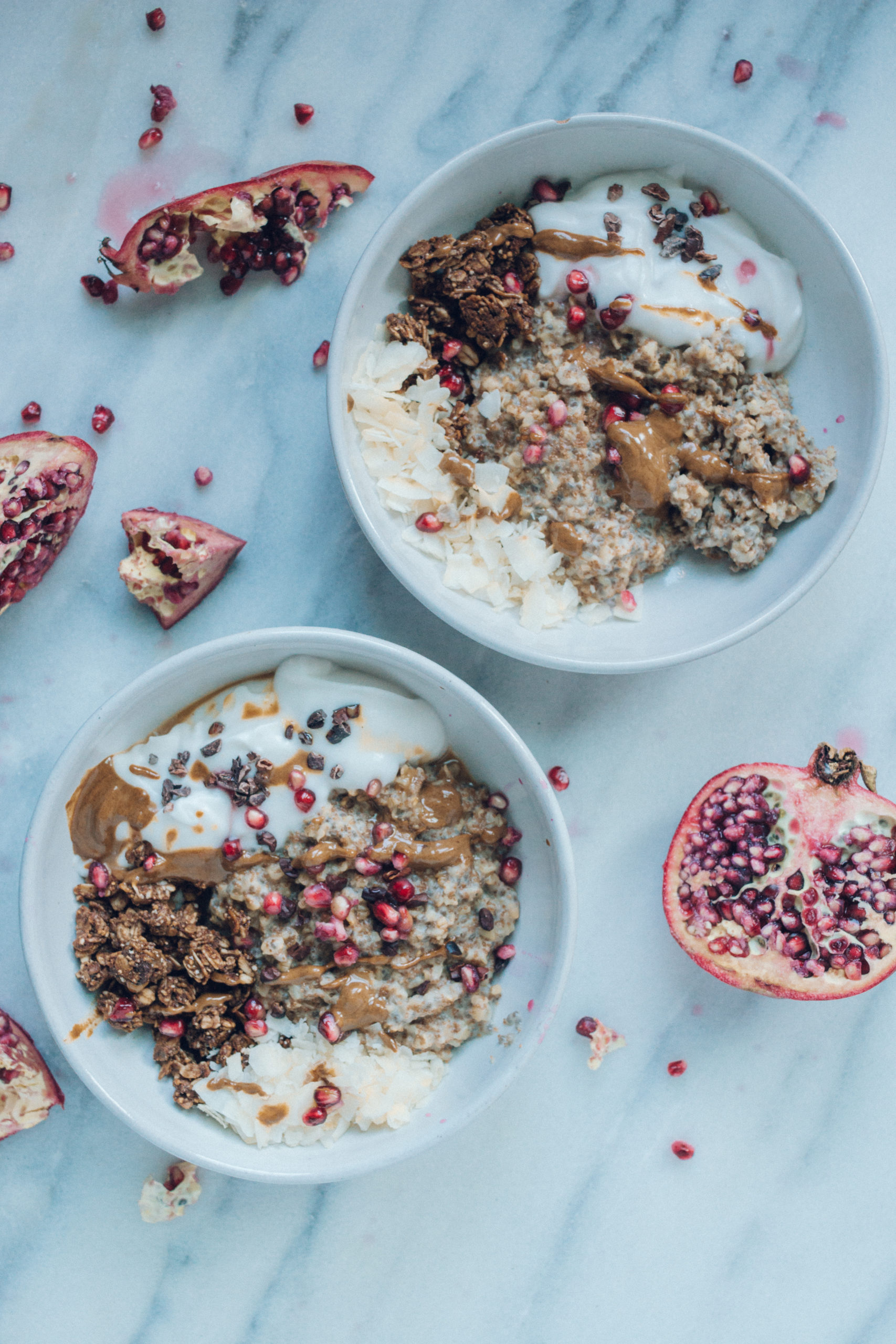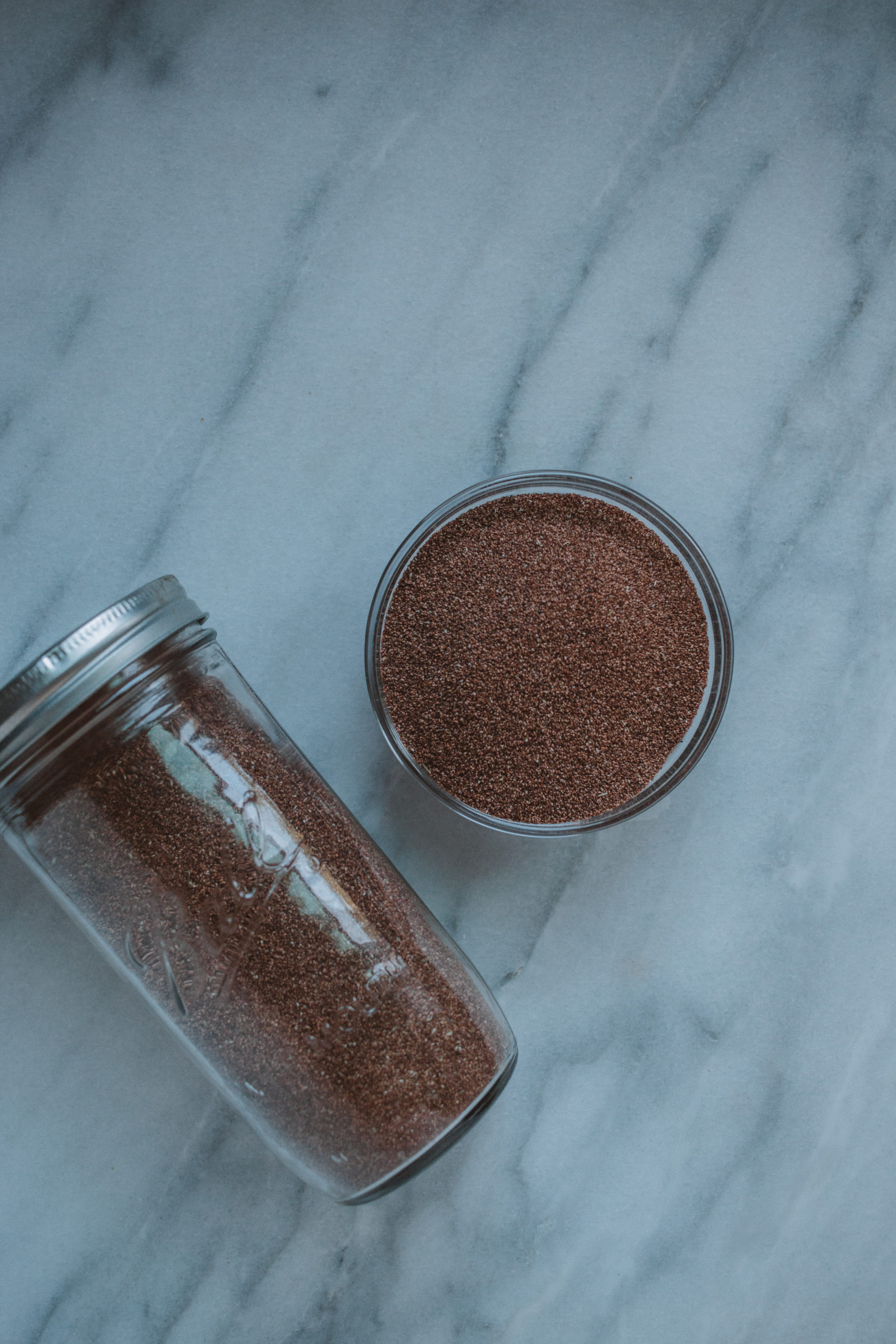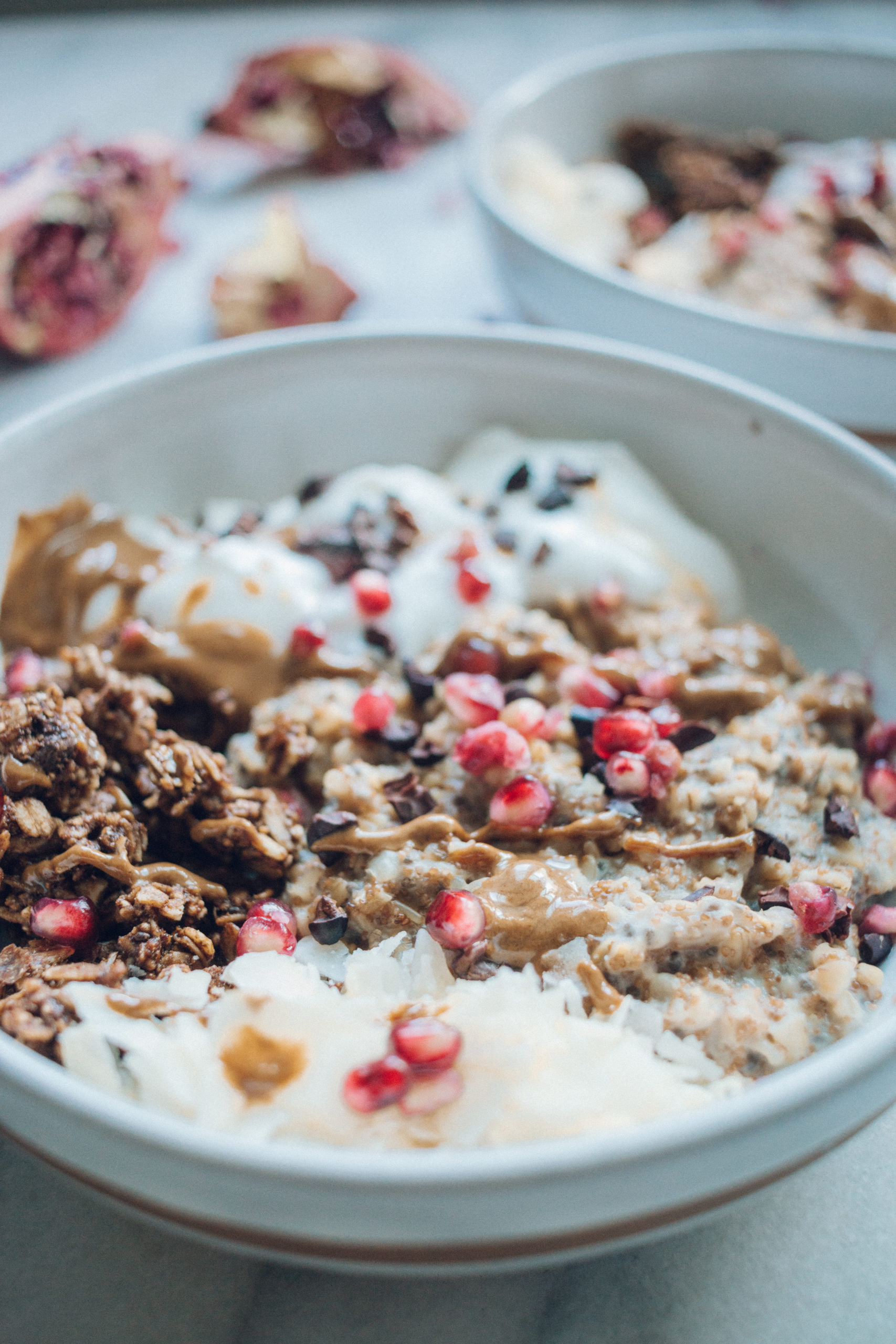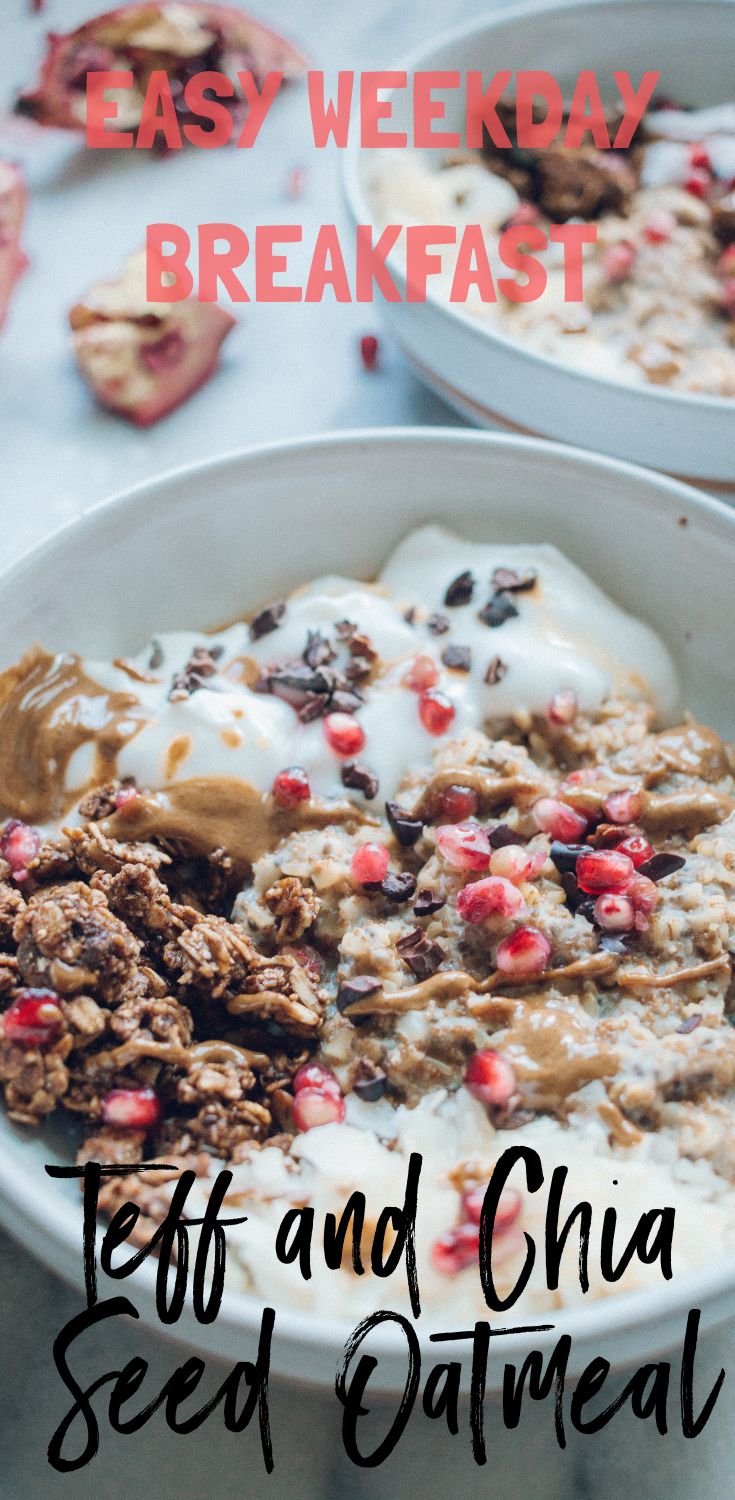All Recipes
Resources
Style
Planning
View All
Balancing Hormones Through Diet: A Path to Fertility
Navigating the intricate dance of hormones can be crucial for boosting fertility. Your diet plays a paramount role in this process. Armed with the right nutrients, your body can find balance, which is fundamental to reproductive health. Hormones such as insulin, estrogen, and progesterone all play their parts, and a well-balanced diet can be the harmonizing orchestra behind them.
As we dive into the specifics, remember that maintaining a balanced diet isn’t just about the food. Remember to be mindful of your meal times and portion sizes. Eating nutrient-rich meals and snacks throughout the day can help maintain energy levels and keep hormone levels stable. Coupled with regular physical activity, such dietary choices pave the way toward hormonal balance and fertility enhancement.
Essential Vitamins and Minerals for Conception
When it comes to nourishing your body for conception, essential vitamins and minerals play a pivotal role. These nutrients are not only crucial for overall health but are vital for enhancing fertility and supporting a healthy pregnancy. Folic acid, for instance, is a powerhouse among fertility boosters. It’s advised for women trying to conceive due to its role in preventing birth defects and supporting DNA synthesis. Incorporating foods such as leafy greens, beans, and fortified cereals can help you obtain this vital nutrient.

Equally important is Vitamin B12, which works hand in hand with folic acid to enhance fertility. Found in animal products like meat, dairy, and eggs, or fortified plant-based alternatives, it supports red blood cell formation and neurological functions crucial during preconception.
Don’t overlook Omega-3 fatty acids, which are renowned for their anti-inflammatory properties and ability to improve egg quality. You can get your fill from fatty fish like salmon and tuna, or plant sources such as chia seeds and walnuts. The inclusion of these healthy fats in your diet can significantly boost your reproductive health.
Choline is another essential nutrient for fertility, that often gets overlooked. It plays a crucial role in cell membrane structure and neurotransmitter function, which are vital for reproductive health. While many people do not consume enough choline in their diets, it’s important for you to pay attention to this nutrient, particularly if you’re actively trying to conceive.
Choline can be found in foods such as eggs, liver, and certain meats, but if those aren’t part of your regular diet, consider incorporating a supplement version like dessicated beef liver or looking at your prenatal and ensuring it has adequate amounts of choline.
By ensuring you are getting sufficient choline, not only can you support your overall health, but also enhance your fertility journey. Remember, a balanced diet that includes a variety of nutrients is key to preparing your body for conception.
By prioritizing these essential nutrients and incorporating them into your meals, you’re not just fostering fertility but also, it’s about preparing your body to support new life. Keep in mind, nurturing a healthy beginning starts with you and the food decisions you make.
Superfoods for Fertility: Nutrient-Packed Choices
For those on the journey to conception, integrating superfoods into your diet can give your fertility a helpful boost. Superfoods are nutrient-dense foods packed with antioxidants, vitamins, and minerals. Let’s explore some ideal superfood candidates that can make a significant difference.
- Avocados: Rich in folate and healthy monounsaturated fats, avocados support hormonal balance and improve overall reproductive health. Their creamy texture makes them a versatile addition to smoothies or salads.
- Quinoa: This protein-packed grain is much more than a carbohydrate. Quinoa delivers vital nutrients like zinc and folate, both of which are essential for conception and fetal development.
- Berries: Blueberries, raspberries, and strawberries are loaded with antioxidants, which combat oxidative stress, a condition that can negatively affect fertility. Enjoy them fresh or as part of a hearty breakfast bowl.
- Yogurt: High in calcium and vitamin D, yogurt not only supports bone health but also fosters a conducive environment for reproduction. Opt for Greek yogurt for an extra protein punch.
- Spinach: As a leafy green powerhouse, spinach is packed with iron, folic acid, and vitamin C. These nutrients are crucial for egg health and should be staples in a fertility-friendly diet.
By incorporating these superfoods into your meals, you’re providing your body with essential elements to strengthen fertility. These choices not only support reproductive health but also enhance your overall well-being. Remember to enjoy them as part of a balanced and varied diet to reap the maximum benefits on your fertility journey.
Lean Proteins and Fertility: Building Blocks for Success
When it comes to enhancing your fertility, incorporating lean proteins into your diet can make a significant difference. Lean proteins, such as chicken, turkey, and fish, are crucial in building and repairing tissues, and they are fundamental for the production of hormones. This makes them an essential component of your fertility diet. Once you are pregnant, your protein needs will increase in the second and third trimester, as your skin begins to stretch and your belly grows.
One of the main benefits of opting for lean proteins is their ability to support a healthy weight. Maintaining a healthy weight is important for fertility, as it helps to keep hormone levels balanced. Overweight or underweight conditions can disrupt the regularity of your menstrual cycle, potentially impacting ovulation and conception.
- Poultry: Chicken and turkey are rich in essential amino acids, which are vital for overall health and particularly beneficial during preconception. Opt for skinless options to reduce saturated fat intake.
- Fish: Oily fish, like salmon and sardines, not only provide lean protein but are also high in omega-3 fatty acids. These have been shown to help regulate reproductive hormones and improve blood flow to reproductive organs.
- Eggs: A versatile and economical source of protein, eggs also contain choline, which supports fetal brain development.
- Legumes: While plant-based, legumes like lentils and chickpeas offer significant protein and are packed with folate, which is vital before and during pregnancy.
A balanced approach to protein intake, combining both animal and plant sources, can offer the best of both worlds. Studies indicate that the intake of plant proteins may increase fertility, especially as part of a comprehensive dietary approach enriched with fruits, vegetables, and whole grains.
By integrating these nutritious sources of lean protein into your meals, you not only support your fertility journey but also pave the way for a healthier lifestyle overall. Remember to vary your choices, aiming for a colorful and diverse plate, which not only promotes fertility but also supports your general wellness and vitality.
Healthy Fats and Fertility: The Omega-3 Advantage
Omega-3 fatty acids aren’t just a trend—they’re a pivotal part of enhancing your fertility health. These healthy fats play a significant role in balancing reproductive hormones, reducing inflammation, and improving blood flow to the reproductive organs. Including omega-3s in your diet can be a game-changer on your fertility journey.
Sources of omega-3s like fatty fish—think salmon, mackerel, and sardines—provide the richest load of these beneficial fats. If fish isn’t your thing, don’t worry! You can also find omega-3s in plant-based options such as flaxseeds, chia seeds, and walnuts. Additionally, taking a high-quality fish oil supplement might be a convenient alternative to ensure you’re meeting your body’s needs.
Research underscores that diets rich in omega-3 fatty acids can positively influence both female and male fertility. For women, omega-3s may improve egg quality and implantation rates, while in men, these fats have been linked to enhanced sperm quality and motility.
Ultimately, intertwining these healthy fats into your meals doesn’t just bolster your fertility. It’s a holistic approach to boosting overall well-being, laying down a nutritional foundation that can support not only your reproductive goals but also your long-term health aspirations. So, the next time you’re meal planning, why not make omega-3s a star player on your plate?
Hydration and Its Impact on Reproductive Health
Water plays a vital role in maintaining overall health, including reproductive function. Staying properly hydrated supports essential bodily functions by helping to regulate temperature, cushion joints, and carry nutrients to organs. It’s also crucial for creating a supportive environment for conception.
Dehydration can affect your body’s ability to efficiently transport hormones and nutrients needed for reproductive health. It can also lead to increased stress levels, which may interfere with ovulation and sperm production. In couples trying to conceive, maintaining adequate fluid intake is essential. Aim for at least 8-10 glasses of water per day, and adjust according to your activity level and climate.
Beyond just water, consider adding hydration-boosting foods to your diet. Foods with high water content such as fruits and vegetables can contribute significantly to your daily fluid intake. Cucumbers, oranges, and strawberries are not only delicious but also packed with vitamins that support fertility.
- Electrolytes Matter: Balance your water intake with electrolytes, as they help in maintaining the body’s fluid balance. Coconut water and electrolyte-infused drinks can be excellent options.
- Limit Caffeine and Alcohol: These can lead to dehydration and impact fertility negatively. Moderate your intake to ensure you’re not counteracting your hydration efforts.
Your hydration routine should be as attentive and deliberate as the rest of your fertility-enhancing practices. Consistent water consumption is an easy yet powerful way to support your fertility journey.
Seeds and Nuts: Small But Mighty Fertility Boosters
When it comes to fertility, the humble seeds and nuts are often underestimated. Yet, these tiny powerhouses are packed with essential nutrients that may support your reproductive health. Let’s dive into how they work their magic.
Seeds such as flax and chia are excellent sources of omega-3 fatty acids. These compounds are crucial for maintaining hormonal balance and enhancing blood flow to reproductive organs. Flax seeds, in particular, are rich in lignans, which exhibit antioxidant properties that may benefit your hormonal health. Chia seeds, along with their omega-rich profile, provide dietary fiber to help maintain a healthy gut—an essential component for hormone regulation.
Nuts, like almonds and walnuts, bring their own fertility-boosting benefits to the table. Almonds are rich in vitamin E, a nutrient known for its role in protecting sperm and eggs from oxidative damage. Walnuts are another powerhouse, loaded with omega-3 fatty acids and antioxidants, which support sperm quality and overall reproductive health.
Additionally, incorporating sunflower seeds into your diet can provide a good source of selenium and vitamin E, both vital for reproductive health. Selenium acts as an antioxidant, shielding cells from damage, while vitamin E supports egg and sperm quality.
While enjoying these nutrient-rich seeds and nuts, it’s essential to maintain balance. Moderation is key, as they are calorie-dense. Incorporating a daily serving—about a small handful of nuts or a tablespoon of seeds—into your meals or snacks can help optimize their fertility-enhancing benefits.
Herbs and Spices: Nature’s Secret Fertility Enhancers
Herbs and spices have long been cherished not only for their ability to enhance the taste of our meals but also for their potent health benefits, including boosting fertility. Certain herbs and spices can serve as powerful allies in your fertility journey by promoting hormonal balance, reducing inflammation, and improving overall reproductive health.
Maca root is a notable player, often referred to as nature’s Viagra. It’s believed to improve libido and fertility in both men and women. Its adaptogenic properties help the body manage stress, which is crucial since stress can interfere with conception.
Cinnamon is another spice to consider. Known for its warming properties, cinnamon can regulate menstrual cycles and improve insulin resistance, making it particularly beneficial for women with Polycystic Ovary Syndrome (PCOS).
Additionally, turmeric, with its active compound curcumin, offers powerful anti-inflammatory and antioxidant benefits. These properties may improve conditions affecting fertility, like endometriosis and uterine fibroids.
Don’t forget about the subtle powerhouses, ginger and garlic. Ginger promotes blood circulation, which is beneficial for reproductive organs, while garlic’s selenium content may enhance sperm motility and function.
It’s essential, though, to integrate these natural enhancers into a balanced diet while consulting with healthcare professionals to align them with your individual health needs. By doing so, you’re creating a harmonious and supportive environment for conception.
Putting it all Together
If you’re looking for more support with your fertility diet, check out our four week fertility meal plan!
Our meal plan is thoughtfully designed to incorporate a variety of fertility-boosting foods, ensuring you receive the essential nutrients needed to support your reproductive health. From fiber-rich whole grains to antioxidant-packed fruits and vegetables, each meal is crafted with your fertility journey in mind.
You’ll find recipes that utilize ingredients like leafy greens, which are high in folate, a crucial vitamin for conception. The plan also includes meals rich in lean proteins, such as fish and poultry, providing you with the building blocks necessary for hormone production and overall wellness.
Let’s not forget about healthy fats! Our recipes incorporate nutrient-dense options like avocados and nuts, ensuring that your body is getting plenty of omega-3 fatty acids, known for their positive impact on fertility. Finally, plenty of hydrating options are included to keep you refreshed and support cellular function.
We understand that everyone’s taste preferences and nutritional needs are unique, so our meal plan is flexible, allowing for substitutions and adjustments to suit your lifestyle. With detailed shopping lists and step-by-step preparation guides, you’ll find it easier than ever to nourish your body and support your fertility.
Ready to start your journey? Dive into our carefully curated fertility meal plan and take the first step towards enhancing your chances of conception, one delicious meal at a time.

Balancing Macronutrients for Optimal PCOS Management
Balancing macronutrients effectively can make a substantial difference in managing PCOS symptoms. This means ensuring your meals have the right amounts of proteins, fats, and carbohydrates. It’s not just about meeting your daily caloric needs; it’s about how those calories are distributed among the macronutrients.
Proteins play a vital role not only in muscle repair but also in stabilizing your blood sugar levels. This can help reduce insulin spikes, which is particularly important for those with PCOS. Aim for 20+ grams of protein per meal to keep you feeling full and satisfied.
Fat is another essential part of your diet. It’s crucial to opt for healthy fats, such as those found in avocados, nuts, seeds, and olive oil. These not only help manage inflammation but also support hormone production, which can be particularly beneficial for PCOS management.
Carbohydrates should not be neglected, but choosing the right kind is key. Focus on non-starchy vegetables, whole grains, and legumes that provide fiber and a slow release of energy. This can help in maintaining steady blood sugar levels. Women with PCOS tend to process and break down carbohydrates more slowly than women without PCOS. This doesn’t mean you can’t eat carbs! Rather, if you have PCOS you need to be a bit more judicious with your carb intake.
The Bottom Line: Including a good mix of these macronutrients in every meal can be a game-changer in managing PCOS. Strive for balance and variety, and consider consulting with a registered dietitian to tailor your diet to your specific needs.
Understanding the Importance of Protein for PCOS
Polycystic Ovary Syndrome (PCOS) is a condition that affects hormone levels in women, leading to a variety of symptoms such as irregular menstrual cycles, weight gain, and even infertility. Since managing PCOS often includes addressing insulin resistance and weight management, incorporating adequate protein in your diet is essential.
Why Protein Matters: Protein is a macronutrient that plays a crucial role in various bodily functions, including muscle repair, enzyme activity, and immune function. More importantly for those with PCOS, protein helps in stabilizing blood sugar levels. Stable blood sugar means less insulin is required, which can be beneficial for insulin sensitivity—a common concern for those dealing with PCOS.
When you consume a high-protein meal, it can promote feelings of fullness and reduce appetite. This can be particularly helpful for weight management, an aspect that hugely impacts PCOS symptoms. Studies have shown that diets rich in protein can help reduce cravings and overall caloric intake, leading to weight loss and improved insulin sensitivity.
Moreover, lean protein sources like chicken breast, fish, tofu, and legumes can be incorporated into your meals without causing drastic spikes in blood sugar levels. This makes protein not only a vital nutrient for muscle and tissue repair but also a valuable ally in managing PCOS symptoms effectively.
Combining protein with other macronutrients such as healthy fats and complex carbohydrates can create balanced meals that support hormonal health. For instance, pairing lean protein with fiber-rich vegetables can further stabilize blood sugar levels, enhancing the benefits of a high-protein diet.
By focusing on including more high-protein foods into your meals, you’re not just adhering to a dietary recommendation—you’re taking an active role in managing PCOS symptoms and promoting better overall health.
Tips for Incorporating More Protein into Your Diet
- Start your day with a protein-rich breakfast like Greek yogurt topped with nuts and seeds.
- Incorporate a variety of protein sources, including plant-based options like lentils and chickpeas.
- Prep protein-packed snacks ahead of time, like boiled eggs or hummus with veggie sticks.
- Include protein in every meal by adding ingredients like tofu, chicken, or fish to salads and stir-fries.
- Blend protein powder into your smoothies for an extra boost in the mornings or post-workout.
Power-Packed Breakfast: Quinoa and Egg Scramble
Kickstart your day with this nutrient-dense breakfast that’s brimming with protein. Quinoa, often hailed as a supergrain, is not only rich in protein but also provides a solid dose of fiber. Paired with protein-packed eggs, this dish is a fantastic way to fuel your morning.

Ingredients:
- 1 cup cooked quinoa
- 2 large eggs
- 1/2 cup baby spinach
- 1/4 cup diced tomatoes
- 1/4 cup chopped bell peppers
- 1/4 cup shredded cheese (optional)
- Salt and pepper to taste
- 1 tbsp olive oil
Instructions:
- Heat the olive oil in a skillet over medium heat.
- Add the diced tomatoes and bell peppers, and sauté for 3-4 minutes until they soften.
- In a bowl, whisk the eggs with a pinch of salt and pepper.
- Add the spinach to the skillet and cook until wilted.
- Pour in the whisked eggs and scramble everything together until the eggs are fully cooked.
- Stir in the cooked quinoa and cook for another 2-3 minutes until everything is well mixed.
- If using, sprinkle shredded cheese on top and let it melt.
This quinoa and egg scramble isn’t just filling; it’s also versatile. Feel free to add your favorite veggies or swap the cheese for a dairy-free alternative if you’re lactose intolerant. Enjoy this dish for a hearty breakfast that keeps you energized and supports your PCOS health.
Lunchtime Delight: Grilled Chicken and Lentil Salad
Combining lean protein with fiber-rich lentils and a medley of fresh vegetables, this salad is not only delicious but also incredibly nutritious. Plus, it’s super easy to prepare, making it a perfect option for busy weekdays.
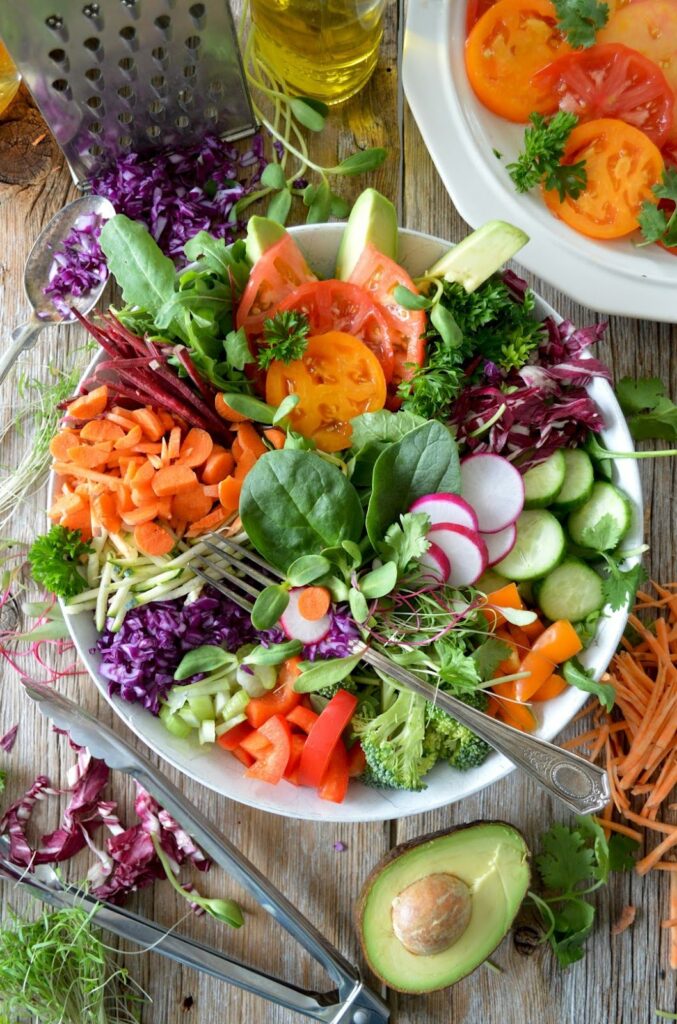
Ingredients:
- 2 grilled chicken breasts, sliced
- 1 cup cooked lentils
- 1 cucumber, diced
- 1 bell pepper, diced
- 1/2 cup cherry tomatoes, halved
- 1/4 red onion, thinly sliced
- 2 cups mixed greens
- 1 tbsp olive oil
- 1 tbsp lemon juice
- Salt and pepper to taste
- Optional: Feta cheese crumbles and fresh herbs
Instructions:
- Start by grilling the chicken breasts until they are thoroughly cooked. Slice them into thin strips once they have cooled slightly.
- In a large mixing bowl, combine the cooked lentils, cucumber, bell pepper, cherry tomatoes, red onion, and mixed greens.
- Drizzle the olive oil and lemon juice over the salad and toss to combine. Season with salt and pepper to taste.
- Top the salad with the grilled chicken slices. If desired, sprinkle feta cheese and fresh herbs over the top for added flavor.
- Serve immediately or store in an airtight container for a quick grab-and-go lunch.
This grilled chicken and lentil salad offers a balanced mix of protein, healthy fats, and fiber that can help stabilize blood sugar levels and keep you feeling full and energized throughout the day—an essential factor when managing PCOS.
Flavorful Dinner: Tofu Stir-Fry with Mixed Veggies
Tofu is an excellent source of plant-based protein and pairs wonderfully with a variety of vegetables for a nutrient-packed dinner. Start by pressing your tofu to remove excess moisture, which will help it absorb more of the flavorful sauce. Next, cut the tofu into bite-sized cubes and lightly coat them with cornstarch to provide that coveted crispy texture when stir-fried.
For the vegetables, consider using a mix of broccoli, bell peppers, carrots, and snap peas – not only do they bring a beautiful array of colors to your plate, but they also offer a diverse range of vitamins and minerals beneficial for managing PCOS. Sauté the veggies in a hot pan with a bit of olive oil until they’re tender yet still slightly crisp.

In a small bowl, mix together a simple yet delicious sauce. Combine soy sauce, minced garlic, ginger, a dash of sesame oil, and a tablespoon of honey or maple syrup. For a little heat, add a pinch of red pepper flakes. Pour the sauce over the tofu and vegetables, stirring to ensure every piece is well-coated.
Serve your tofu stir-fry over a bed of brown rice or quinoa for an additional protein and fiber boost. This meal not only satisfies your taste buds but also aligns with dietary needs essential for managing PCOS. Enjoy the balance of savory and slightly sweet flavors, knowing you’re treating your body right.
Sweet Snack: Greek Yogurt with Chia Seeds and Berries
Sometimes, satisfying your sweet tooth while sticking to your high-protein diet can seem challenging, especially when living with PCOS. That’s where Greek yogurt with chia seeds and berries comes to the rescue! This snack is not only delicious but also packs a powerful punch of protein, healthy fats, and antioxidants.
Start with a cup of plain Greek yogurt. Greek yogurt is a fantastic source of protein, offering around 10 grams per serving. It’s also rich in probiotics, which are beneficial for gut health—a crucial factor when managing PCOS.
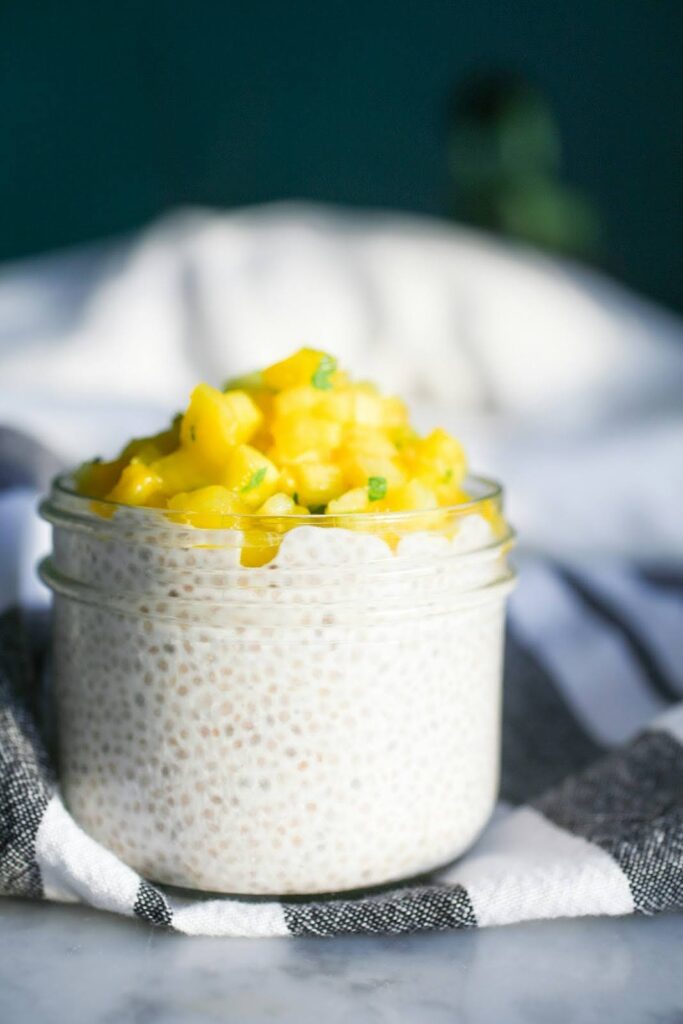
Next, add a tablespoon of chia seeds. These tiny seeds are nutritional powerhouses, providing an additional 2 grams of protein per tablespoon, along with omega-3 fatty acids and fiber. The fiber in chia seeds can help manage blood sugar levels, an important aspect for those with PCOS.
Top your yogurt and chia mixture with a handful of fresh berries—strawberries, blueberries, or raspberries are excellent choices. Berries are low in sugar but high in antioxidants, which combat inflammation and can improve overall metabolic health.
Finally, if you need an extra touch of sweetness, drizzle a small amount of raw honey or add a few slices of banana. This will make your snack even more indulgent without straying from healthy eating principles.
Hearty Soup: Turkey and Spinach Lentil Soup
When it comes to hearty and nutritious meals, this Turkey and Spinach Lentil Soup checks all the boxes. Not only is it packed with protein and fiber, but it also offers a flavorful and satisfying option for lunch or dinner.
Ingredients:
- 1 lb ground turkey
- 1 cup dried lentils, rinsed
- 6 cups low-sodium chicken broth
- 1 medium onion, chopped
- 2 carrots, diced
- 2 celery stalks, diced
- 3 cups baby spinach
- 3 cloves garlic, minced
- 1 tsp dried thyme
- 1 tsp dried oregano
- 1 tsp paprika
- Salt and pepper to taste
- 2 tbsp olive oil
Instructions:
- In a large pot, heat some olive oil over medium heat. Add the finely chopped onion and garlic, sautéing until they become fragrant and translucent.
- Next, add the ground turkey to the pot. Cook until the meat is browned, breaking it up with a wooden spoon as it cooks.
- Stir in the diced carrots, celery, tomatoes, and lentils. Pour in the chicken broth and bring the mixture to a boil.
- Reduce the heat to low, cover the pot, and let it simmer for about 30 minutes, or until the lentils and vegetables are tender.
- Add the spinach leaves during the last 5 minutes of cooking, allowing them to wilt and integrate into the soup.
- Season with salt, pepper, and any additional herbs or spices to taste, such as thyme or basil.
- Serve the soup hot, and enjoy a warm, nutritious meal that’s perfect for managing PCOS.
Conclusion
Incorporating high-protein meals into your diet can be a game-changer when managing PCOS. The recipes we’ve explored are not only nutritious but also delicious, offering a variety of flavors to keep your meals exciting. By balancing macronutrients and choosing wholesome ingredients, you can support better ovulation, reduce symptoms like acne and bloating, and enhance your overall well-being. Remember, managing PCOS takes a holistic approach—so listen to your body, make adjustments as needed, and don’t forget to enjoy your culinary journey. Here’s to healthier days ahead!
PS Looking for more? Check out our Four Week Fertility Meal Plan, with four weeks of done-for-you meals, grocery lists, and meal prep tasks.
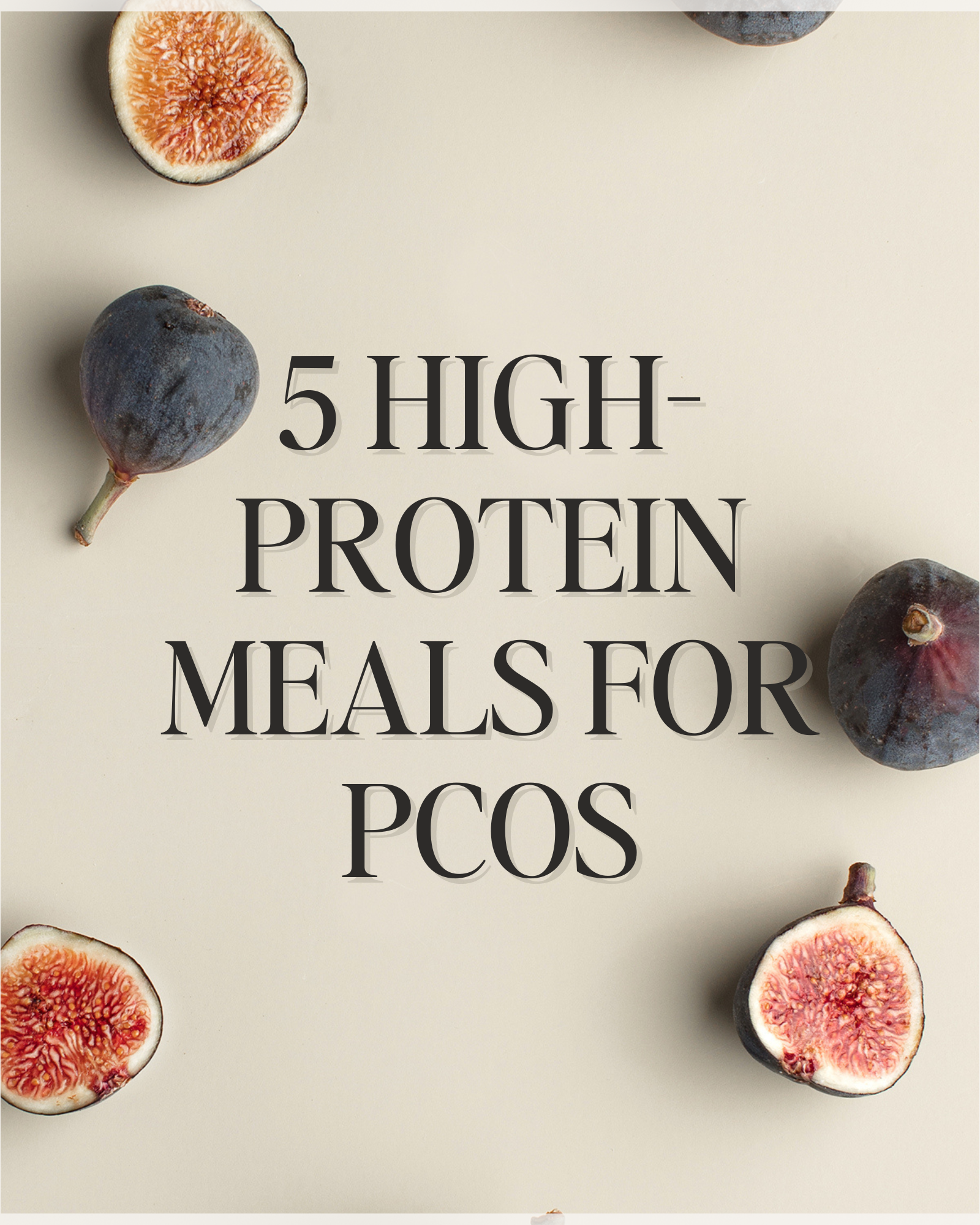
Oatmeal contains high levels of minerals, such as magnesium and zinc, in addition to fiber and B vitamins. This makes it a great food option if you are struggling with PCOS. Oatmeal can be your quick fiber-rich breakfast, an afternoon snack or eaten really anytime of day! The ingredients are minimal, and you probably have them in your pantry already. It’s a win-win.
Which type of oats is best for PCOS?
The less processed it is the better! Instant oatmeal is the most processed form of oats. Then it’s old fashioned oats and lastly steel cut oats. Steel cut oats have a sharper texture than old fashioned oats that some people don’t enjoy. If it’s your preference, old fashioned oats would still be a healthy choice!
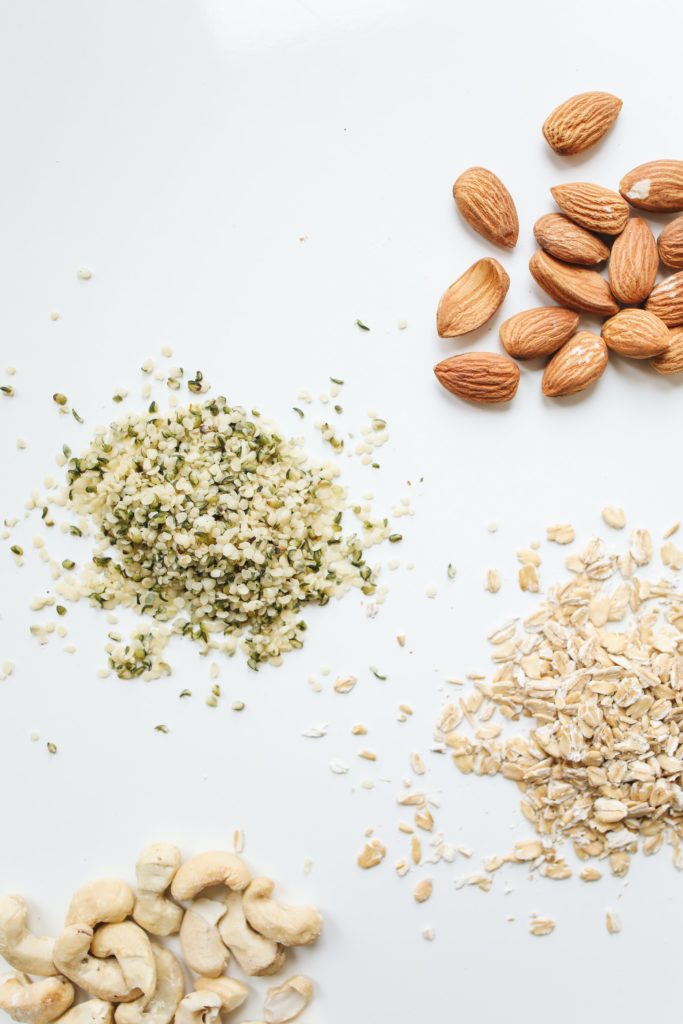
Which breakfast is best for PCOS?
The best breakfast for PCOS is well balanced with lean protein, healthy fats, and whole grains/complex carbohydrates. As a bonus you could even add in some veggies, like if you were having a smoothie or eggs.
Examples of lean protein choices for breakfast include:
- Eggs
- Nut butter (peanut, almond, etc.)
- Nuts and seeds (chia seed, ground flaxseed, etc.)
- Greek yogurt
- Leftover fish or chicken — Hey, who says breakfast has to be “breakfast food”? 😉
- Tofu
- Some plant-based milks with protein like Ripple
Healthy fats such as polyunsaturated and monounsaturated fats are also important in helping us to feel full. These fats give us energy to start the day off right! We can get these healthy fats from foods such as salmon, sardines, avocado, nuts (walnuts, pistachios) and seeds (for example chia and ground flaxseeds).
And last but not least, don’t forget the healthy carbs! Most women with PCOS think they have to avoid carbs and this is simply not true. Fruit, whole grains/complex carbohydrates are considered healthy carbs.
Best fruit choices for PCOS:
- Whole, fresh fruit – all kinds!
- Frozen fruit
- Most of the time frozen fruit does not have added sugar. So there is nothing wrong with eating frozen fruit.
- Dried fruit without added sugars
- Double check the nutrition facts label and try to avoid dried fruit with sugar.
- If it does have sugar remember this quick tip: Keep total added sugars under 25 grams per day for women.
Examples of whole grains/complex carbs for breakfast include:
- Whole grain bread or English muffin
- Oatmeal
- High fiber, low sugar cereal
- Low sugar granola
- Plantains/potatoes
Best Oat Recipes For PCOS
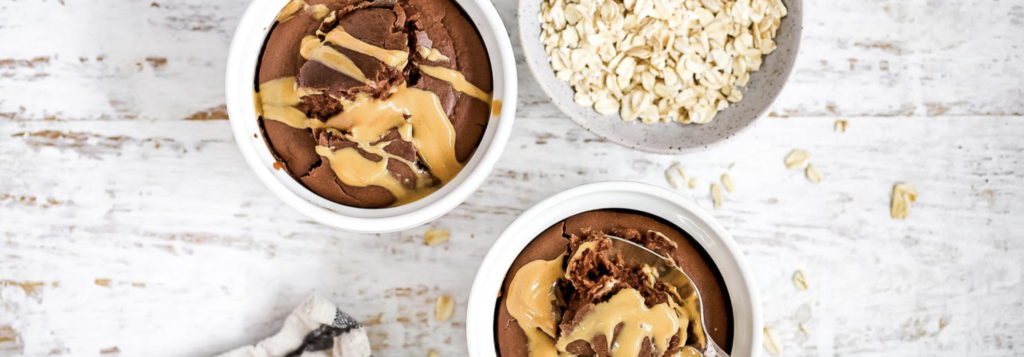
Chocolate Peanut Butter Cup Oatmeal:
1/4 cup rolled oats
1/2 cup unsweetened nut milk
1 tbsp all-natural peanut butter
1 serving chocolate protein powder
2 tsp ground flax seeds
1 tsp chia seeds
sea salt to garnish
Instructions:
Mix oats, flax seeds, chia seeds and nut milk in a bowl.
Microwave for 1-2 minutes
Stir in peanut butter and protein powder.
Top with a sprinkle of sea salt.
Looking for more Support?
Be sure to check out our Free Live Masterclass all about the top 3 ways to naturally enhance your fertility (perfect for those struggling with PCOS and hormone imbalances!)

This may be my all-time favorite recipe. No lies. I absolutely love salmon, and let’s be honest, grilling it with some lemon and spices can get pretty old quickly. Enter these super delicious, super easy, super moist, salmon kebab skewers. I love this recipe because its easy enough to throw together during the week, but it also looks super fancy and as if you spent hours in the kitchen. Looking to impress some guests, definitely try this recipe.
Why Salmon?
Salmon is an excellent source of Omega-3 fatty acids. Meaning? As humans, there are two types of poly-unsaturated fats that we cannot make: Omega-3 and Omega-6 fatty acids (aka alpha-linolenic and linoleic acids) are essential fatty acids, because our bodies cannot make them. These types of fats are needed in the diet, however the traditional American diet is heavy on the Omega-6 fats, and less so Omega-3. This is why people are often promoting Omega-3 fats because we often don’t get enough.
DHA and EPA are two types of fats that are made from Omega-3 fatty acids, and these are especially important because they help reduce inflammation, are critical in brain health (and brain development of your baby when you’re pregnant). Salmon is an excellent source of Omega-3 fatty acids and I always recommend my clients to have 2-3 servings of fish per week. If you’re pregnant, better to stick to smaller fish to decrease the risk of mercury entering your bloodstream.
Genius Food
I recently picked up a copy of Genius Foods: Become Smarter, Happier, and More Productive While Protecting Your Brain for Life, by Max Lugavere. In the book he talks about the benefits of eating wild salmon on brain health (in addition to reducing risk for cardiovascular disease, cancer, and all cause mortality) specifically. Aside from EPA and DHA omega-3 fats (see above), wild salmon also has high amounts of astaxanthin. This carotenoid, he says, can boost cognitive function, protect the eyes and skin, and provide antioxidant effects and free radical scavenging.
Additionally, astaxanthin can “switch on” the gene for protecting DNA damage and the stresses of aging. It’s no wonder that fish is often promoted as a healthy source of protein, and salmon in particular has so many wonderful health benefits. If you’re interested in other genius foods, definitely check out this book!
Easy Weeknight Dinner
The other reason I love this dish, aside from the protein, omega-3 fats, and antioxidant power, is that it’s super easy to throw together on a weeknight. For instance, when I come home from a long day, the last thing I want to do is cook for an hour and a half, then wash dishes, and then the night is over (you may feel the same way?!). Instead, try eating these skewers straight from the skewer and not even use a plate: win-win!
Lastly, you can let these salmon kebabs marinate overnight, or even just throw it all together right when you get home – either way, this dish is delicious, healthy, and super moist and flavorful. In short, if you’re looking for a delicious, simple and healthy weeknight dinner – these salmon kebabs will be your new favorite recipe. Enjoy!
- 1 lb salmon
- 1 tablespoon Primal Kitchen Mayo
- 1 tablespoon Coconut Aminos or Tamari
- Preheat oven to 400 F
- Remove the skin from the salmon using a sharp knife (or ask the fish counter to do it for you!)
- Cut the salmon into 1 inch cubes
- Mix together the mayo and coconut aminos in a medium size bowl
- Add the salmon cubes and mix until well coated
- Skewer the salmon on wooden sticks
- Place salmon skewers on a parchment-lined baking sheet
- Bake in oven for 15 minutes
- Let cool for 2 minutes, and enjoy!
You might also like: Mediterranean Quinoa Salad
Holy mother of halva! I’ve truly out-done myself, friends. I’m so excited to share these vanilla halva cake bites with you today because I thought it was good, but then I shared these bites with my friends, and got RAVE reviews. Yippee! These bites are the perfect sweet treat after dinner, or even as a pre-workout quick sugar fuel. Check it out below!
Teff Chia Seed Oatmeal with Coconut Yogurt and Cacao
Hi friends! I’m really excited to share this teff oatmeal recipe with you all today because not only does this recipe feel super cozy for fall, but it also is extremely easy to put together. I should know, because aside from taking a billion photos of the recipe, it actually only took 15 minutes for this to come together. Easy, healthy, delicious. DONE.
I love that this oatmeal is a little different, because I added chia seeds, which are an excelled source of omega-3 fatty acids and fiber, but also because I added teff. Teff is a pseudo-grain from Ethiopia. If you’ve eaten Ethiopian food, you’ve probably eaten injara, which is a spongy bread made from teff flour, and is traditionally eaten with with the different stews. I’m actually salivating right now just thinking about Ethiopian food!
What is Teff?
Teff is awesome because its a gluten-free grain that is very high in protein and fiber, and also a good source of manganese, iron and calcium. One half-cup of teff uncooked has about 354 calories, 12.8 grams of protein, 70.6 grams of carbs, and 7.7 grams of fiber. I love adding even a tablespoon of teff into rice dishes as well, because it adds a different texture, as well as a different variety of nutrients. Teff is full of many B-vitamins, and it’s an awesome way to introduce a variety of whole grains into your diet. The flavor is kind of nutty, which I love, especially combined with oats and chia seeds. Teff is really tiny, so be careful because it can easily go everywhere in the kitchen if you’re not careful! (I may be speaking from experience here…..)
I hope you give this recipe a try, I know you’ll love it! Be sure to tag me on Instagram if you do make it, I love seeing your recipes!
- 1/2 cup Gluten free oats
- 2 tbsp Chia Seeds
- 1/2 cup Teff
- 1 tsp Cinnamon
- 2 cups Almond milk or milk of your choice
- 1 tbsp Cacao nibs
- 2 tbsp Pomegranate seeds
- 1-2 tbsp Almond butter
- 1 tbsp Coconut flakes
- Combine the oats, teff, and chia seeds in a small sauce pan and cover with almond milk.
- Add a dash of cinnamon and a pinch of salt, stir in.
- Bring to a boil and reduce down to low heat until set, making sure to stir every few minutes.
- Add any topics you like such as pomegranate, cacao nibs, almond butter, coconut flakes.
- Serve immediately.
The Preconception Playbook
This free playbook provides specific actionable tips to get started on your fertility journey, as well as what to avoid while you're trying to conceive.
Get the free playbook

